Whether people realize it or not, the bartering system is still alive and well. We do it every single day, when we go to the grocery store, the gas station, and when we pay the rent. In case you aren’t familiar with the barter system, it’s pretty easy to understand.
It can be defined simply as the exchange of goods or services between two people. For example, if you needed your car repaired, you would go to a mechanic who would require some form of payment in exchange for his services to fix up your automobile.
Today, we barter with paper money issued by the government. At one time in history, not all that long ago, this paper currency was backed with gold, giving it real value. Since leaving the Gold Standard, the currency issued by the government basically only has value because the Treasury says it does.
In a SHTF-type of scenario, paper money is completely and utterly useless. In order to survive in a world without government backed currency, you will need to be able to barter with other survivors to get the supplies you and your loved ones need to survive.
Most people today feel safe and sound in the current government issued currency situation, and don’t believe that anything is going to happen to upset things. However, all one needs to do is look at what happened in New Orleans after Hurricane Katrina.
People were stuck without any access to funds or outside help, so they were strictly on their own for survival. In order to get what you need in that type of crisis, you must know how to get supplies from those who have them, by having something they need in return.
Here are a few rules to live by when it comes to bartering with other survivors in a SHTF situation. Keep in mind that your life may depend on your ability to barter and acquire food and other supplies, so take these to heart.
Items That Are Absolutely Essential
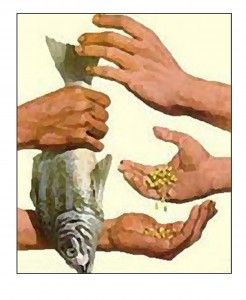
Two things you must have in order to survive are food and water. These two are your number one priority. Since you need these items to live, that means others do too. If you have livestock and crops, these can be as good as gold in a bartering situation. By trading food and water you can almost guarantee you will get whatever you need from someone looking to trade. Make sure that you have a way to replenish your supply before you begin to trade these items, otherwise you will be in big trouble.
Another important group of items you will need is camping and hunting gear. Hunting will be one of your main sources of getting high protein food to eat and sustain your strength. Any item that can be used to survive away from urban areas will be great for trading with other people. Be sure to visit local hunting and outdoors shops and stock up on supplies when they are putting items on sale. This will make sure that when things go south, you will have “currency” to trade with those who don’t have the means of hunting or finding suitable lodging.
Creature Comforts
The second group of items both to barter with and for are comfort items. These are items that aren’t necessary to sustain life, but they do make things more comfortable, and a little less dark.
Hygienic supplies like soap, toothpaste, and toilet paper are some of the best supplies to trade with. Staying clean is incredibly important to your health and safety. In a SHTF situation, a cut or scrape that gets infected could lead to death. Stock up on soap and toothpaste and you will have commodities that everyone needs, making you “wealthy” in this type of world.
Another comfort item that is good for barter is alcohol. People love their booze, even in a world that’s fallen completely apart. You will be surprised at the great lengths individuals will go to in order to get a cup of moonshine.
Tips to Know
- If you are bartering with someone, it’s like playing a game of poker. You don’t want to give away too much information in your body language or facial expressions. Keep a straight face! Do not let the other person see that you are in desperate need of the items they have. If someone sees that you need something badly, the price of the exchange will go up.
- Always ask the individual you are bartering with what type of items they are looking for. You do not want to show off your entire inventory to someone you don’t know. Start with the items that are of lesser value and work your way up to the valuable ones. Showing off the best you have first could cause you to be harmed by someone who is desperate for that item.
- Avoid trading with weapons at first. While items like guns and ammunition can be extremely valuable in survival situations, they can also be deadly. Trading with someone you don’t know well could lead to someone taking the weapon and using it on you. At that point they will also have access to your entire inventory, leaving you with nothing.
While no one wants to have a situation like this occur, the reality is that we never know what is going to happen day to day. It is better to learn these skills and be prepared, so that if that day comes, you aren’t the desperate one roaming around for the basics of life. Stay well supplied and stocked with the materials mentioned above, and you will be well ahead of the curve when the SHTF.
This article has been written by Michael Cantrell for Survivopedia.


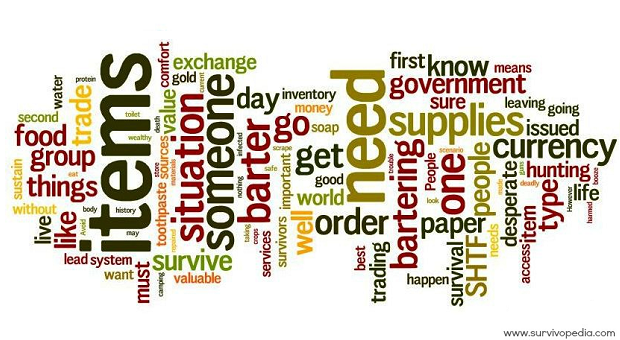
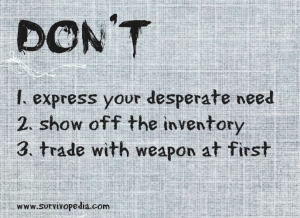

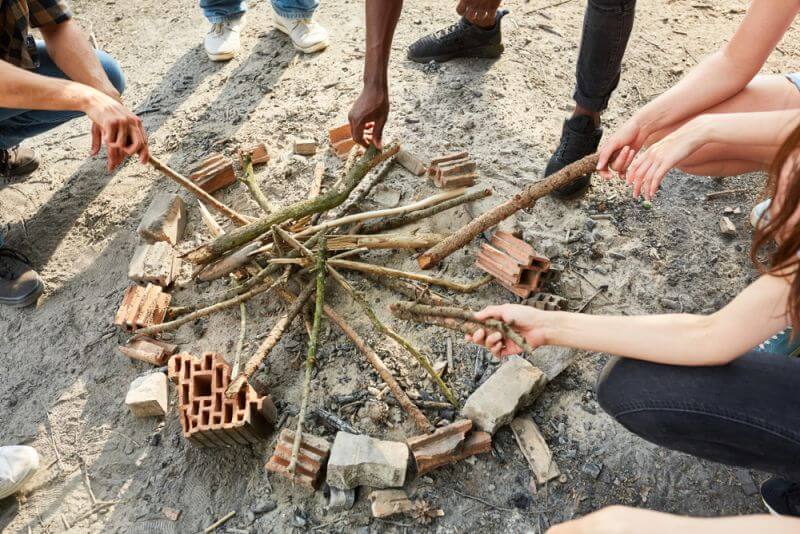
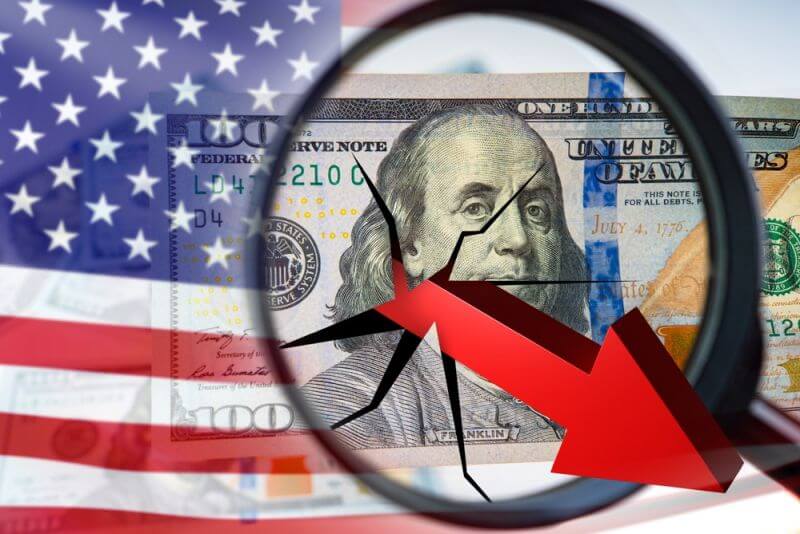
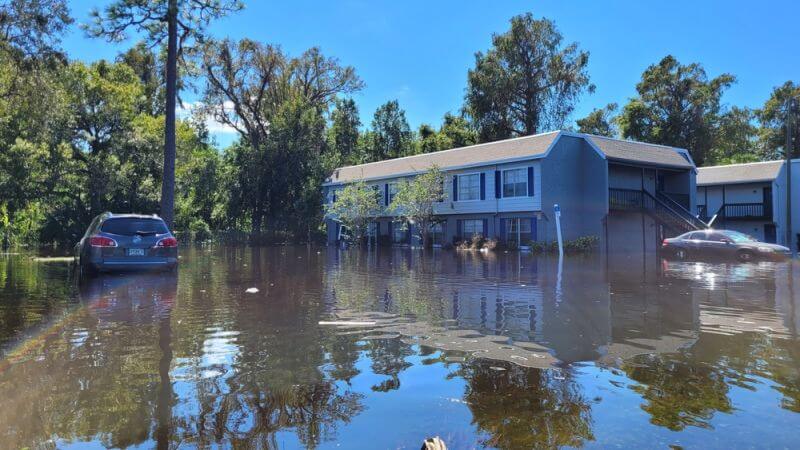
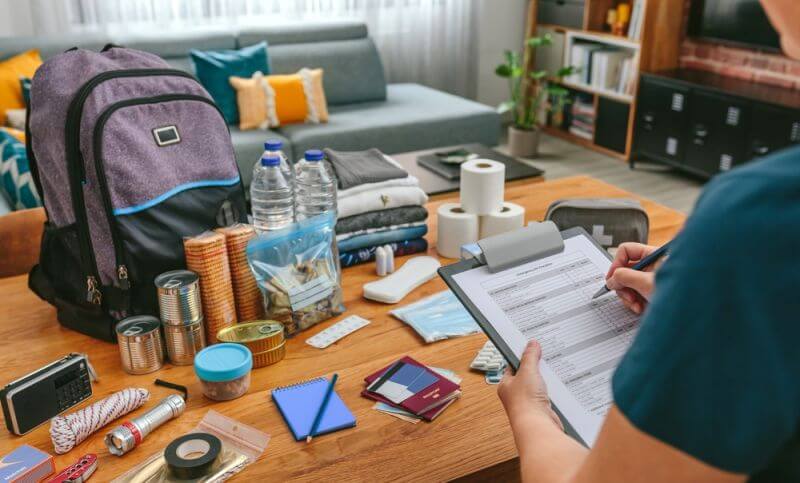

HappyClinger | November 29, 2013
|
Good article! I never thought of being careful who I trade weapons with but that is excellent advice.
I would add: Don’t barter one-on-one; do it in a public barter location with other people around. Don’t barter anywhere near your own supplies, and only take a few items so you do not expose yourself as well-supplied; stick to bartering only the items you brought and do not volunteer that you have other items you did not bring. If asked, just say no. It’s perfectly feasible that you might have those items to trade at the next “meet” so don’t worry about being caught in a lie. A SHTF situation is not the time to worry about whether people think you’re “nice.”
Also, please be very aware of loiterers, people who are just a little too friendly, and being followed back to your location. Take a roundabout way back, make a couple stops, and always survey your surroundings. Be safe, survive, and may God bless you.
David | March 7, 2014
|
HappyClinger, great add on to the article. I think you have to have more than one on one as well. Someone has to be the lookout while the other does the trading. Be careful not to show too much force, because people (low lifes) will think you have allot of valuable items if someone with you is carrying a shot gun with you.
Old Soldier | March 8, 2014
|
Speaking of security while bartering. The best security is a wingman that watches his/her back as well as yours and does not appear to be with you. When security is needed, surprise is a great advantage. It is hard to train many people for this role.
Clifton Gordon | November 29, 2013
|
I have often wondered why you almost never hear about the benefits of owning a horse when SHTF. Seems to me that a horse would be a big help in getting around, hunting, moving heavy items like logs and many other ways to make life a little easier for some of us who are not as young and full of PAV the way we once were. The only problem would be a lot of folks could see your horse as meat on the hoof. Just saying
Daniel | November 29, 2013
|
A horse is a very expensive project and requires a lot of room to maintain. You would be better off to wait until the shtf and steal one, like everyone else. LOL
Leatherneck | November 30, 2013
|
Waiting until the last minute to get a horse will leave you not much better off. If you don’t know much about horses the learning curve is steep. It’s not as easy as it looks in movies. They require knowledge and experience.
One advantage it that you can cover a lot of rough ground fast and not as noisy and motor vehicles.
Roper | November 30, 2013
|
Stealing is serious business, and NOT funny dude. You apparently need to be told that stealing is a contemptible act of cowardice – in times past, now, and after the SHTF, & certainly not worth an LOL! Not only is horse ownership a rewarding way of life (more to it than just having a dog around the house), but expect the typical rural owners to be very well armed, crack shots used to handling their (our) defensive weapons (and frequently practicing on other varments on the property) and working 1500+ lb. animals on a daily basis.
I heard from this other kid who said he would take a cow at pasture if he got hungry. Also not funny, because the owner – rancher, farmer or family has their personal money tied up in that 4-legged investment, so don’t expect them to allow thieving to go unpunished. Rustlers were promptly hung from the nearest tree back in the day, or shot dead on the spot.
I strongly encourage you to EARN your way toward personal survivalism and helping your family survive the coming dark times by prepping, storing and training NOW so you won’t be killed for stealing livestock or property that belongs to others. There is zero tolerance for that crap out here in the Oklahoma hinderboonies.
Old Soldier | December 2, 2013
|
Vigilante groups will form when society breaks down. Thieves, arsonist, the bullies who take what they want will be dealt with. No jails, no courts, no appeal, no briefs to write, just rough and ready justice. The frontier was rough but when thieves and bullies surfaced, neck tie parties or firing squads quickly followed. Many of the early lawmen were probably better defined as executioners of bad men more than law enforcement officers. Of course law was pretty simple in day to day life. The ten commandments and stiff, biblical punishments sufficed for the most part.
Jay | November 30, 2013
|
I have a feeling the delivery horse and wagon for milk will be done by Mennonites again when TSHTF–ya think??
James S. Ford | November 30, 2013
|
By all means obtain a handgun for self defense and a large quantity of ammunition. Train to use that firearm effectively under stress in SHTF scenarios. Carry concealed and practice, practice, practice, with dry fire and live ammunition how to defend yourself against multiple assailants. Then stock up on stuff to barter with.
eastofaustin258 | November 30, 2013
|
Bicylces are most useful for both riding and carrying goods. (Mountain bikes or old fashion coaster brake models are better than the fancy thin tired touring models.) Teams of people who know how to work together are critical. One person barters. Two or three other sets of eyes watch the watchers. The full team need not all arrive together.
In terms of stuff: Tarps of all sizes, preferrably not bright orange or blue. Window glass and a way to cut it to size. Radio equipment is critical. CB or Family Service rigs should be good sellers. (Personal security for group would best be on HAM bands 2 meter or UHF with unusual offsets and tones.) Rechargeable batteries and solar panels to recharge them are important to have, as well as barter. Deep cycle 12 volt batteries are good investments. Inverters will be important. Loading dies, brass, primers, powder and bullets are safe barter items. (Somebody has to take them home and load them before they can be used.) Needle and thread are important. Magnifying glasses. Stabile or other gasoline preservatives. Gas cans– like Jerry cans will be important. Basic tools– shovels, axes, picks, prybars, hammers, handsaws, vices, anvils, etc. First aid stuff. Medical supplies. It’s far more likely that you will find a doctor than a doctor with all the stuff he/she needs. Large pots and pans. Cast iron ware. Dutch ovens. Weather radios. Cheap LED flashlights. How to books: Boy Scout manuals, military manuals, books on antenna design, etc. Recreational supplies: playing cards, musical instruments, board games, things to occupy kids and adults, books for education and entertainment. Histories, the “Foxfire Series”, reloading manuals, etc. Encyclopedias are being thrown away at the present time, but if the SHTF, a history of everything dating to 1980 will be far more valuable than a non-existant internet connections. Bibles and books from other religious traditions. (Even if you don’t share someone’s faith position, there are advantages to know where they are coming from.) (There will be no TV or video games.) Motion detectors: solar powered lights, driveway alarms, etc. Wire for both communication, alarms, and tyingthings together. Canning jars and lids, parafin, canners, how to books if you don’t know how. Whistles, survival mirrors and other signaling devices. Basic fishing supplies including large hooks and heavy line. Locks, chains, hinges, hasps, etc. These are just some of the things that come to mind. If it turns long term, then gold testing kits. (You can set up a service for others to make sure they are not cheated.)
Just some things that come to mind in no particular order.
MorrisB | November 30, 2013
|
Good article and comments. All valid, but as things settle down and efforts are being made to reorganize to some kind of structured community again there will
be a need for some kind of informal banking system-like it or not! Yes, paper money will probably have no value but there has to be a recognized means of exchange. All older societies had some agreed-upon standard, so that traders would know that one potato would equal one ear of corn or two clad quarters.
I recommend preppers start collecting clad quarters as a post SHTF currency.
Otherwise, Joe wants my jar of honey but doesn’t have anything I want – the
whole barter system breaks down unless there’s some neutral community that can be taken and then passed along (exchanged) to someone else and have a given value.
eastofaustin258 | December 2, 2013
|
My hunch is that at least one form of post TEOTWAWKI currency will be the unfired .22 LR cartridge. Copper pennies will be another (pre-1982–currently worth about 2 1/2 cents in salvage weight. Everybody knows about pre-1965 silver coins. Mexican silver coins still show up from time to time in the Southwest. Gold and silver in any form will have value. BUT these are all “post-event values.” You can’t eat them. You can’t drink them. They won’t keep you warm. And they won’t keep you alive– in fact, people will kill you for them if they know you have them. The fundamental question is where you are going to be. If you are where you want to stay, then accumulate what you need to be able to stay there. If you want to be somewhere else, put your treasure there, and if at all possible, put yourself there as well. If you plan to move just before the SHTF, get a really good crystal ball, or plan to move with the blowing S. If so, you better be in good shape– that everybody your want to take with you is in good shape– that you can carry whatever you think you will need on your own two feet– that you not appear to be an attractive target– that you have a mindset that can be utterly ruthless. Individuals/individual families will be picked off very easily. The key to survival is to climb in a hole and pull the entrance in over your head for the first couple of months, or be part of the meanest, best organized team in twenty miles. Vehicular travel will be very limited once it is clear that the balloon has really gone up.
I was appointed a “Civil Defense Housing Officer” for a rural Texas county thirty some odd years ago. (Before DHS and FEMA). This was during the cold war, and since the USSR had a plan to evacuate the cities, we had to have one as well. Those great planners, in their less than infinite wisdom, planned to house 25,000 people from South Dallas in our county with less than a gross population of 8,000 souls. THere were no pre positioned supplies. Dallas was more than 200 miles away, so how these 25,000 folks were going to get to us was never made clear. But we were to prepare for them. There were two meetings. One was a small meeting of the committee charged with developing a plan. The second was the one where all the various committees (food, energy, housing, security, etc) got together and reported what we were going to do in our area. What came out of the second meeting was a very serious plan on how to blow the bridges over the rivers leading into our county, and which one’s we needed to leave up so that necessary commerce with our neighbors to the North (and East and South and West) could continue. I am convinced that had the balloon gone up, the bridges would have gone down. (BTW, the County Judge, the Commissioners, the Sheriff, the Mayor of the County Seat, the DA and the DPS and Texas Ranger stationed in our county were all at the second meeting.) (And yes, the county still continued to take Federal money for the “studies” and the “planning” for the evacuation that would never have happened.)
MorrisB | December 2, 2013
|
Do you get the feeling that the “community” was more involved back maybe 30
years ago than today? Apparently the alphabet agencies (backed by the military?)
will run everything and we sheep will just do what we’re told. Such progress.
eastofaustin258 | December 2, 2013
|
I was a deputy sheriff (reserve) and a local pastor in those days. People wore a variety of hats, and at least in the rural areas, we were all on a first name basis. It really didn’t matter what hat one wore. We all had BS detectors that worked fairly well.
Carl | November 30, 2013
|
my .. even now we have people that only care about them selfs. You think if you have a bigger gun you will be able to go about and steal things? You think you can survive with your big gun and kill anyone that gets in your way? You have just sealed your fate. The only way to survive is to have good honest people around you that you can trust. You will be the first to go because we know who you are. It makes me sick to see this comment on this site. If your just fishing .. this is not the place to do so .. get your kicks in another site. Take your big gun attitude with you. ..
Old Soldier | December 2, 2013
|
There are predators on the street now. The number will increase rapidly as order breaks down. Try living in many areas of many large cities even now. You are only as safe as you can make yourself. Being able to take care of the problem will prevent problems in many cases. Of course what you advocate is the ideal but even in far better times, the hard working, honest, God fearing communities were preyed on. I trust you over reacted and aren’t really one of those who do not view guns as tools. Very necessary tools at times.
Kukriking | March 8, 2014
|
OldSoldier- You are 100% right on the money. Unfortunately, you’d be lucky to trust someone for bartering only in the beginning of a crisis. Very Very soon you might not even be able to trust extended family members. It’s a God awful thought but if you really think about it, thoroughly and deeply, it’s actually likely you won’t be able to trust anyone beyond your wife and kids. A barter scenario would be like a drug deal you see in the movies…the two dealers (barterers)in the middle with all their bodyguards hovering, poised to pounce. And how many of those deals went without a hitch? NONE. There’s always a shootout, right ? One doesn’t want to give up their stuff and tries to take it by force. It’s human nature when you’re desperate and/or greedy.
Also, hunting MAY be possible at the start, but will soon be impossible for many reasons, two of them being a lack of enough stealth, then, lack of things to hunt. OldSoldier nailed that point too.
GTG, Troop! “MOLON LABE!”
Suzy | April 3, 2014
|
Hi Lisa,I’m not sure how you are entering your trisnactaons, but your trial balance will equal following my steps. When you enter a bill for the transaction, you will debit an expense and credit accounts payable. When you enter an invoice you will debit accounts receivable and credit sales. To record the bill payment you will debit accounts payable and credit the barter account. To record payment for the invoice you will debit the barter account and credit accounts receivable. Each transaction has a debit and credit entry for the same amount. The trial balance will be in balance.
eastofaustin258 | December 2, 2013
|
Carl, if I read your post correctly, you seem to be saying that you and those like you are willing to eliminate any who advocate a preparation for violence. That seems ironic. Or are you saying (unclearly) that outlaws will not be tolerated?
Old Soldier | December 2, 2013
|
I see hunting mentioned a lot among preppers. When I moved to AR in 1950, if you saw a deer track in the woods, you took people to see it. No wild turkeys, duck population very low on the major flyways. Restocking and conservation efforts have restored deer, turkey and small game to many areas to the point of abundance. Come a major depression, they will quickly disappear. Many old timers in AR tell of hunting all night with good dogs and getting only one possum. In 1950 the “Hoover hog” (armadillo) had not arrived from Texas. Probably because they were eated down to the point their range stopped expanding. Now they are plentiful in AR. Unless you live in a very remote wilderness that has virtually no population and the ability to come in from outside does not exist, do not plan on living off the land.
cuzinray | December 3, 2013
|
The best advice and information. What are your skill sets? What are the skill sets of your neighbors? Non-urban folks will have to depend on each other. Urbans better learn quickly, who they can depend on and who is suspect. Skills will keep you alive, otherwise you are using oxygen, food and water. Paperpushers had better find something to “market” otherwise it’s a shovel/hoe or burial.
MustangWriter | May 1, 2014
|
I always invisioned 3 bartering scenarios.
1.) A ‘Barter Town’ much like a flea market or Farmers Market. Barter Towns will have their own security.
2.) Personal bartering like a ‘yard sale’ without your goods being strewn about on tables. A list of items you have written on a chalk board is good enough. Signs can be posted that the area is being surveyed by crack shot snipers and any ‘shenanigans’ will be dealt with by deadly force.
3.) ‘Drug house’ bartering. Well fortified and barricaded with slot in the door. One goes up to the door and states what they have and what they need.
Pingback:Vital Skills for Urban Survival During a Crisis | May 22, 2014
|
Pingback:Urban Survival: 8 Skills You Can’t Live Without | TheSurvivalPlaceBlog | August 4, 2014
|
Pingback:Why Starting a Flea Market Can Help You Survive Crisis | Survivopedia | May 22, 2016
|
Pingback:Why Starting A Flea Market Can Help You Survive Crisis | Prepper's Survival Homestead | May 22, 2016
|
Pingback:Why Starting A Flea Market Can Help You Survive Crisis | | disasterdefense.us | May 23, 2016
|
Pingback:How The World Would Change Without Fuels? | | disasterdefense.us | May 25, 2016
|
Pingback:How The World Would Change Without Fuels? | Survivopedia | June 22, 2018
|